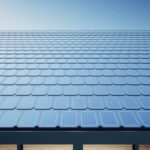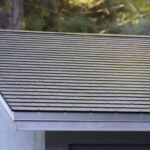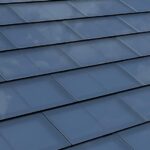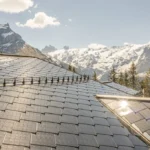Understanding the relationship between roof moss and energy efficiency is essential for homeowners aiming to maintain a sustainable and cost-effective household. The presence of moss on your roof can influence various aspects of your home, including its energy consumption. In this article, we will delve into how roof moss affects energy efficiency and what measures can be taken to manage it.

What is Roof Moss?
Moss is a small, non-vascular plant that thrives in damp and shaded environments. Roofs, especially those in shaded or humid areas, are prime locations for moss growth. Moss can retain moisture, which may lead to roof damage over time.
How Roof Moss Affects Energy Efficiency
The presence of moss on your roof can impact the energy efficiency of your home in several ways:
Insulation Compromise
Moss can penetrate shingles and other roofing materials, causing them to deteriorate. This deterioration can lead to gaps and cracks, which compromise the insulation of your roof, allowing heat to escape in the winter and enter in the summer.
Increased Energy Bills
When your homes insulation is compromised, your heating and cooling systems have to work harder to maintain a comfortable temperature, leading to increased energy consumption and higher utility bills.
Preventing Roof Moss
Preventing the growth of moss is crucial in maintaining the energy efficiency of your home. Here are some strategies to consider:
Regular Roof Maintenance
Regular inspections and cleaning can prevent moss from taking hold. Consider hiring professionals for a thorough cleaning. [Learn more about roof moss maintenance](https://roof-home.com/roof-moss-treatment-diy/) here.
Trimming Overhanging Branches
Reducing shade by trimming branches that overhang your roof can decrease the amount of moisture retained, making it less hospitable for moss.
Improving Roof Ventilation
Enhancing the ventilation in your attic or roof can help control moisture levels, reducing the likelihood of moss growth.
Eco-Friendly Solutions for Moss Removal
Many homeowners are opting for environmentally friendly methods to remove moss. These methods are not only effective but also safe for the environment. [Explore eco-friendly moss removal methods](https://roof-home.com/eco-friendly-roof-moss-removal/) here.
Professional Moss Removal Services
While DIY methods can be effective, professional services offer a thorough and efficient solution to moss problems. They use specialized tools and techniques that ensure complete removal without damaging the roof.
Benefits of Professional Services
Professionals can identify potential issues that may go unnoticed by homeowners, preventing future moss growth and related problems.
Long-Term Impact on Energy Efficiency
By keeping your roof free from moss, you can maintain or even improve your homes energy efficiency. A clean and well-maintained roof can help maintain the integrity of your homes insulation, reducing energy costs over time.
Roof Moss and Roof Types
Different roof types can affect the likelihood and severity of moss growth. For example, wooden shingles are more susceptible to moss due to their texture and material. Learn more about roof moss on wood shingles.
Environmental Considerations
While removing moss is essential for energy efficiency, its also important to consider the environmental impact of the methods used. Opting for eco-friendly solutions minimizes harm to the environment.
Reducing Chemical Use
Using fewer chemicals not only protects the environment but also ensures that your roof materials are not damaged by harsh substances.
Conclusion
Addressing roof moss is a vital step in maintaining your homes energy efficiency. By understanding its impact and taking preventive measures, you can protect your home, reduce energy costs, and contribute to a more sustainable environment. For further guidance on removing moss from your roof, visit [IKO’s guide](https://www.iko.com/blog/how-to-remove-moss-from-shingles/) here.

FAQs
What causes moss to grow on roofs?
Moss typically grows on roofs that are shaded and retain moisture. Overhanging trees and lack of sunlight are common factors.
Can I remove roof moss myself?
Yes, there are DIY methods available, but its often recommended to hire professionals for a thorough and safe removal.
How often should I inspect my roof for moss?
Its advisable to inspect your roof at least twice a year and after significant weather events.
This article contains affiliate links. We may earn a commission at no extra cost to you.







